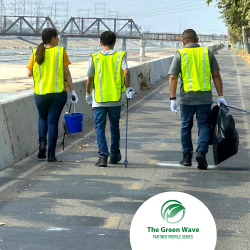Welcome to The Green Wave! This is an ongoing series of profiles featuring the outstanding organizations we partner with at GRID Alternatives Greater Los Angeles, and their environmental justice & sustainability projects focused on the advancement of a cleaner environment for future generations.
Over the past year, GRID Alternatives Greater Los Angeles (GLA) has committed to improving the lives of communities in Southeast Los Angeles via the groundbreaking Regional Climate Collaboratives (RCC) initiative.
The program is supported by a $1.75 million grant from the California Strategic Growth Council, and GRID GLA has been collaborating closely with four other key RCC stakeholders to navigate the project through Year 1. We are thrilled to be working with Gateway Cities Council of Governments (COG) - an assembly of 27 member cities; the SELA Collaborative - a network of nonprofits rooted in Southeast Los Angeles, TreePeople, an organization which specializes in nature-based solutions, and the LA County Chief Sustainability Office, an advocate for environmental justice within the region.
Ari Eisenstadt joined GRID GLA recently as our new Community Engagement Program Manager, and will be working closely with the collaborative. “Even though I’m new to the GRID staff, Working with the RCC partners has made me feel immediately at home,” said Ari. “The partnership is full of devoted people and organizations with deep ties to the RCC service area and a real commitment to environmental justice."
"I feel confident that the RCC will be able to implement a community-driven vision for climate change mitigation and environmental health. Impacted residents are truly at the center of this collaboration and are bringing the expertise needed to make decisions that are actually reflective of community needs."
Ari Eisenstadt, Community Engagement Program Manager
Recently, we had the opportunity to sit down with Aileen Qin, an Associate Planner at Gateway Cities Council of Governments (COG) who shared insights on how RCC community engagement is gaining traction and driving sustainable climate action.
Can you tell us about the Gateway Cities Council of Governments (COG) and your role as an Associate Planner?
The Gateway Cities Council of Governments (COG) is a joint power authority composed of 27 member cities, dedicated to enhancing the quality of life for residents across Southeast Los Angeles County. Our efforts span five critical policy areas: Housing and Homelessness, Transportation, Economic Development, Air Quality and Climate Initiatives, and the emerging focus on Health and Wellness.
As an Associate Planner, my primary focus is on Air Quality and Climate Initiatives. In this role, I work closely with our partners, including GRID Alternatives GLA, on the Regional Climate Collaboratives (RCC) project. Together, we are striving to create sustainable, impactful climate solutions that address both environmental and social challenges within communities.
Can you elaborate on the goals of the RCC and the specific challenges it addresses in the most Gateway Cities?
While the RCC coalition represents 27 cities, the pilot project zeroes in on 8 cities within the SELA Collaborative's geography. These communities are among the most disadvantaged, grappling with high unemployment, overcrowded rental housing, low-income households, and many residents lacking healthcare coverage. Additionally, these areas endure a disproportionate number of extreme heat days and elevated levels of air pollution.
The RCC project aims to confront these social and environmental issues by integrating climate solutions that improve overall well-being. At the heart of our work is the unique partnership between government bodies and nonprofits. This collaboration is particularly powerful because nonprofits often have the trust of the communities we serve, while governments hold the authority to implement lasting change.
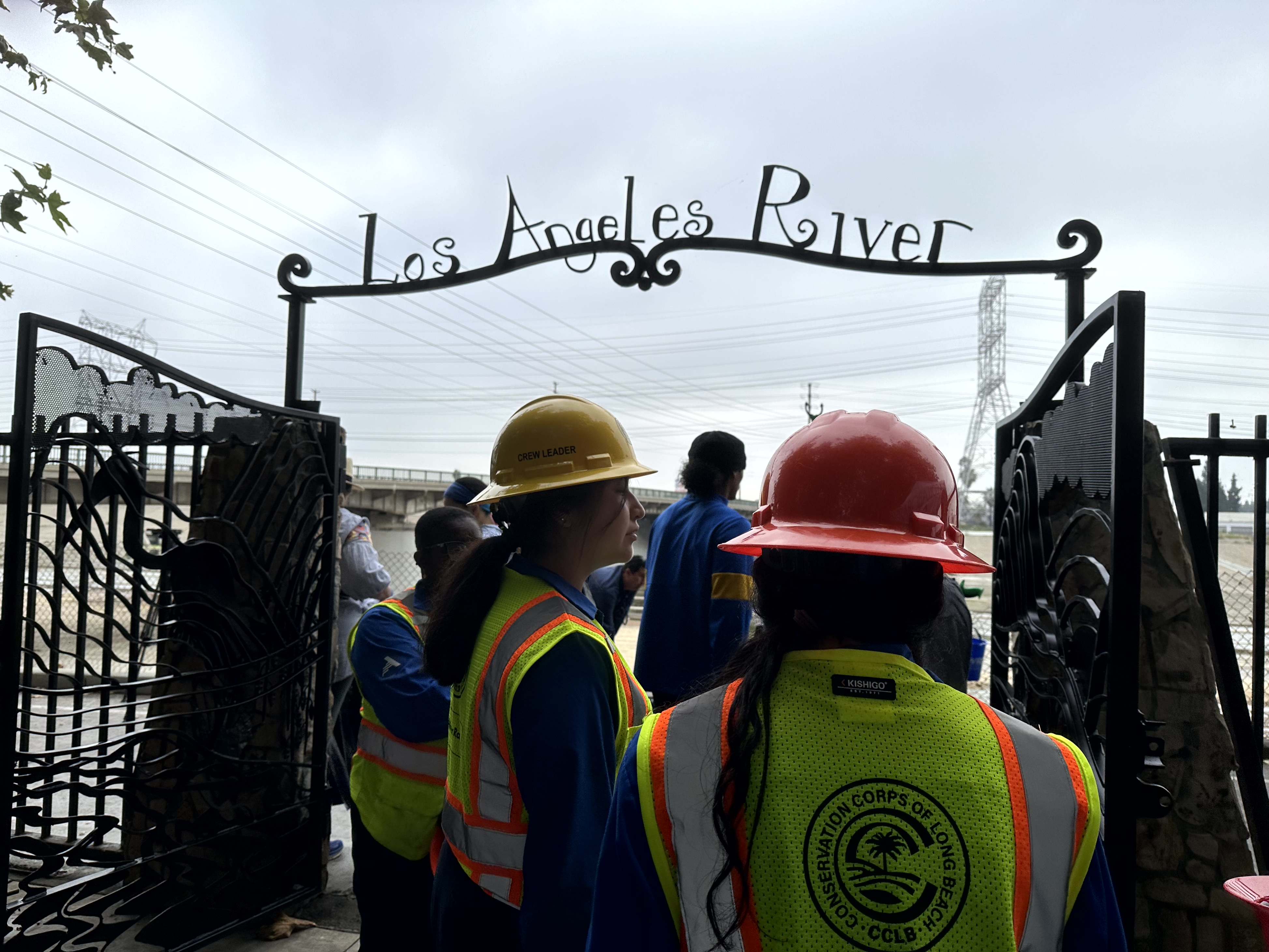
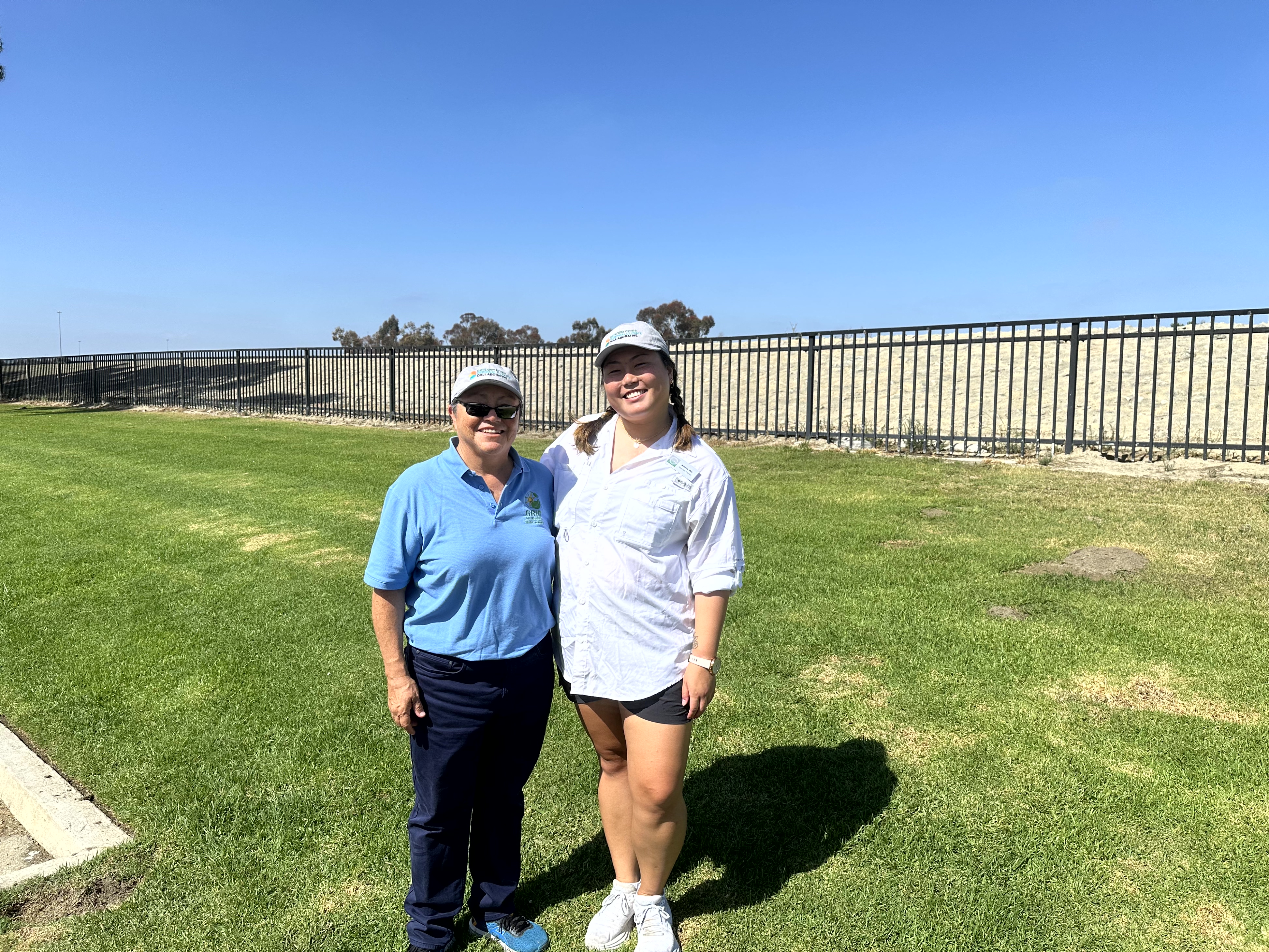
How does the Gateway Cities Regional Climate Collaboratives (GCRCC) ensure that the voices of the communities are heard and reflected in your projects? Can you provide an example of how community feedback has shaped a specific initiative?
At the Gateway Cities RCC, we believe that effective climate action must be community-driven. By collaborating with nonprofits, we ensure that our projects are rooted in the real needs and aspirations of the communities we serve. We dedicate substantial time to listening and understanding the challenges, hopes, and ideas of the residents.
An essential part of our process is education, where we inform communities about potential projects and possibilities, helping them make informed decisions. We are committed to challenging assumptions and asking the tough questions, all in the spirit of finding the most impactful solutions. Integrity, responsibility, and follow-through are core to our approach, ensuring that once a plan is agreed upon, we relentlessly pursue the necessary funding to bring these visions to life.
What has been the most significant achievement in the first year of the three-year grant for the Regional Climate Collaboratives project?
The first year of the RCC project has been a foundational period. We've devoted significant effort to establishing a strong governance structure and, equally important, building trust—both among our partners and within the communities we serve. This trust-building process has been incredibly powerful, especially as we co-create solutions from the ground up.
In government, there's often a focus on the practical, on the "how." But this project has brought me back to the "why"—why these climate initiatives are crucial, why they matter so deeply to the people involved. It's been inspiring to work alongside such passionate and committed experts, all driven by a shared purpose. This reminder of the deeper motivations behind our work has been one of the most rewarding aspects of this first year.
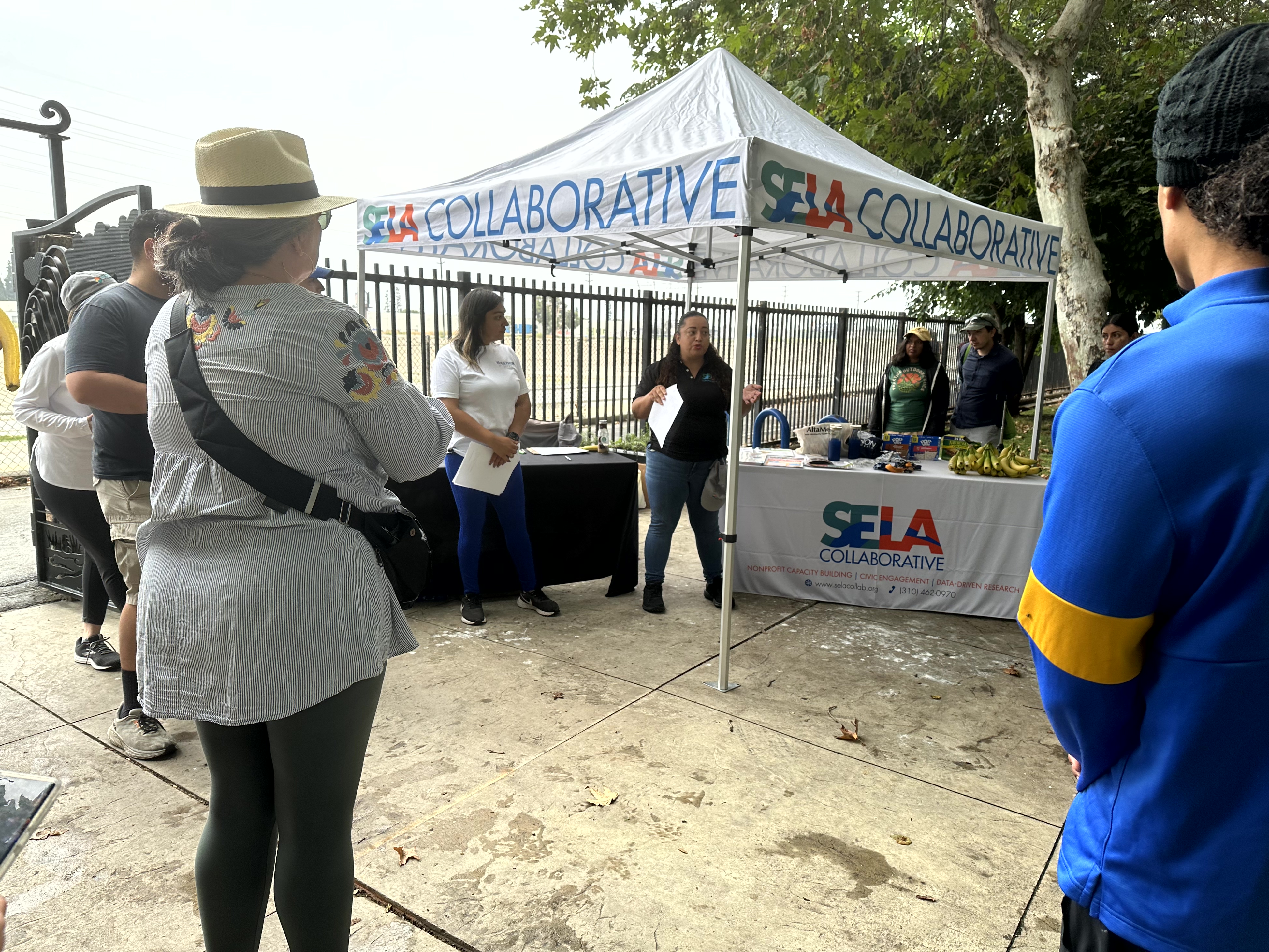
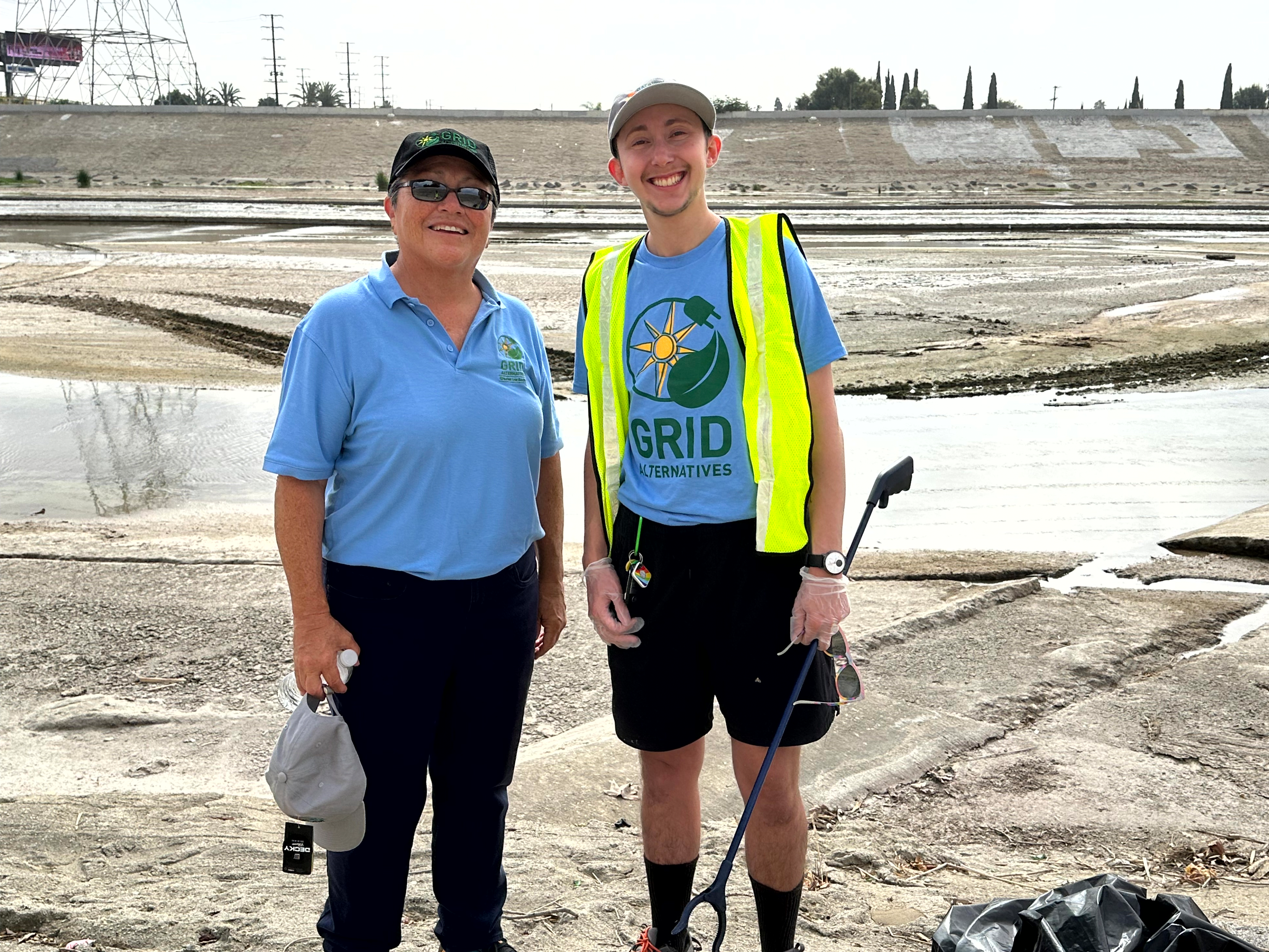
Looking ahead, what are the key initiatives or projects the Gateway Cities Regional Climate Collaboratives (GCRCC) plans to focus on over the next 12 months and as you near the end of the current grant term? How do you plan to sustain and expand the impact of your initiatives?
As we approach the final year of our three-year grant term, our focus will turn to securing the future of our initiatives beyond this period. We will actively seek new funding opportunities to continue growing capacity within these cities and across the wider county. Additionally, we are evaluating where we can bring in new partners to address any gaps and further strengthen our efforts.
Thank you so much, Aileen! We’re thrilled to be a key partner in the RCC journey. Your commitment to equity and sustainable solutions aligns perfectly with the GRID Alternative goals. We’re excited to continue building on the progress we’ve made together and working towards a brighter, more equitable future for our LA communities.
-----------------------------------------------------------------------------------------------------------------------------
Contact us to learn more
Keep up with GRID GLA on a daily basis.
Sign up for our Newsletter
Follow us on Instagram
Follow us on Facebook

